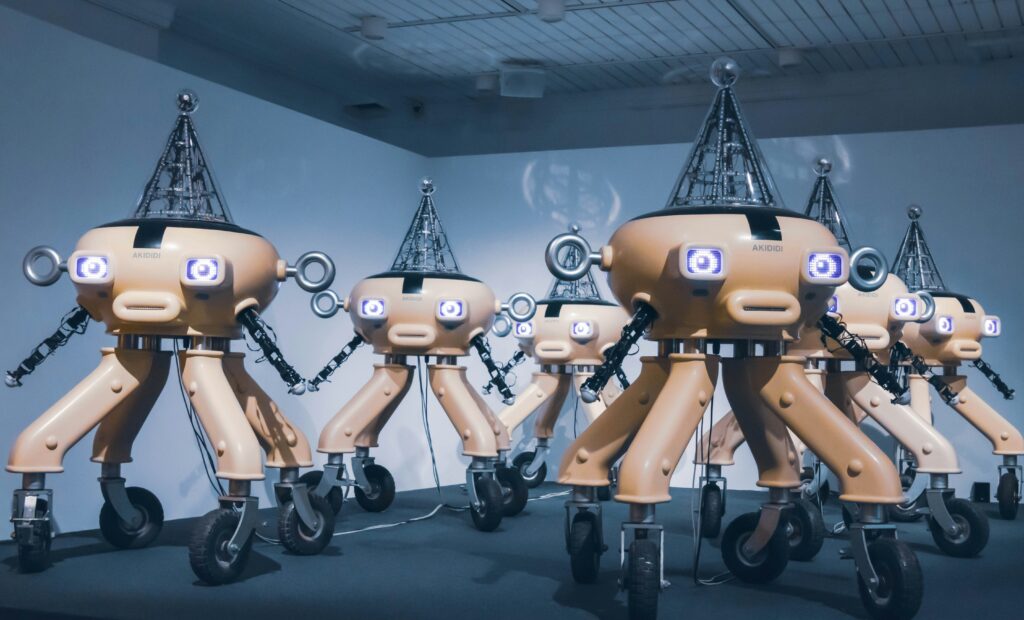For years, the promise of Artificial Intelligence has captivated innovators and science fiction enthusiasts alike. While we’ve seen incredible advancements in areas like natural language processing and image recognition, the latest wave of innovation is moving beyond mere data processing or content generation. We are now witnessing the dawn of truly autonomous AI agents, intelligent systems powered by advanced Machine Learning algorithms that can independently plan, execute, and even self-correct complex tasks. This development represents a monumental shift, taking AI from an intelligent tool to an proactive partner.
Recent breakthroughs, particularly over the past year (late 2023 to early 2024), highlight this evolution. Researchers and tech giants are no longer solely focused on building larger LLMs but on creating architectures that allow these models to interact with the real world, utilize external tools, and manage long-term goals. For instance, new multimodal AI models, like those showcased by Google and OpenAI, demonstrate capabilities beyond single data types, allowing AI to process and synthesize information from text, images, audio, and even video simultaneously. These models form the bedrock for sophisticated AI agents, capable of everything from managing complex project workflows to designing new materials in a lab.
Driving Efficiency: Data and Research Underscore AI’s Impact
The practical implications of these advanced AI and Machine Learning systems are profound, with data underscoring their transformative potential across sectors. A recent report from Gartner highlighted adaptive AI systems as a top strategic technology trend for 2024, emphasizing their ability to continuously learn and adapt in real-time, leading to unparalleled efficiency gains. Similarly, studies from firms like McKinsey & Company project that generative AI alone could add trillions of dollars in value to the global economy annually, primarily through automation of knowledge work and enhanced creativity. These figures only begin to scratch the surface of the impact once AI agents, which can orchestrate multiple AI models and tools, become more prevalent, promising to streamline operations and unlock new avenues for innovation that were previously unimaginable.
Businesses adopting these cutting-edge AI technologies are reporting significant improvements in productivity and decision-making. From automating customer service interactions with context-aware AI agents to optimizing supply chains through predictive analytics, the integration of intelligent Machine Learning is no longer a futuristic concept but a present-day competitive advantage. For a deeper dive into the foundational technologies enabling this revolution, you can explore our article on understanding generative AI, which provides context for these advanced developments.
Transforming Industries: AI Agents at Work
The ripple effects of intelligent AI agents are set to revolutionize nearly every industry. In healthcare, AI agents are accelerating drug discovery by analyzing vast datasets, aiding in personalized treatment plans, and even assisting with complex surgeries. In finance, they are enhancing fraud detection capabilities, optimizing trading strategies, and providing hyper-personalized financial advice, all with greater accuracy and speed than human counterparts. Manufacturing stands to benefit immensely from AI-driven automation, predictive maintenance, and intelligent robotics, leading to smart factories that are more efficient and resilient.
Beyond traditional industries, these AI systems are poised to impact our daily lives. Imagine personal AI assistants that not only manage your schedule but also proactively anticipate your needs, handle complex online tasks, and even learn your preferences to optimize your living environment. Educational sectors could see AI agents tailoring learning experiences to individual students, providing dynamic feedback, and automating administrative tasks, freeing educators to focus on mentorship and innovation. The ability of these Machine Learning driven agents to interact with their environment and make decisions autonomously is unlocking unprecedented levels of productivity and problem-solving.
The Future Unveiled: Expert Predictions and Ethical Horizons
Looking ahead, experts in the field of AI and Machine Learning largely agree that autonomous agents represent the next major frontier. Dr. Anya Sharma, a leading AI ethicist, recently commented, “The progression from reactive AI to proactive, autonomous agents will define the next decade of technological advancement. However, this power necessitates profound ethical considerations regarding safety, bias, transparency, and accountability.” The future vision includes highly specialized AI agents collaborating in complex ecosystems, perhaps even forming “AI societies” that collectively solve grand challenges like climate change or disease eradication. This collaboration between diverse AI entities and human oversight will be crucial.
While the potential benefits are immense, the development of these advanced AI systems also brings forth significant challenges. Ensuring ethical guidelines are embedded in their design, mitigating algorithmic bias, and establishing robust regulatory frameworks are paramount. The discussion around job displacement and the need for upskilling the workforce will intensify. Ultimately, the successful integration of these revolutionary AI agents will hinge on a thoughtful and collaborative approach, balancing innovation with responsible deployment to harness their full potential for humanity’s benefit.

